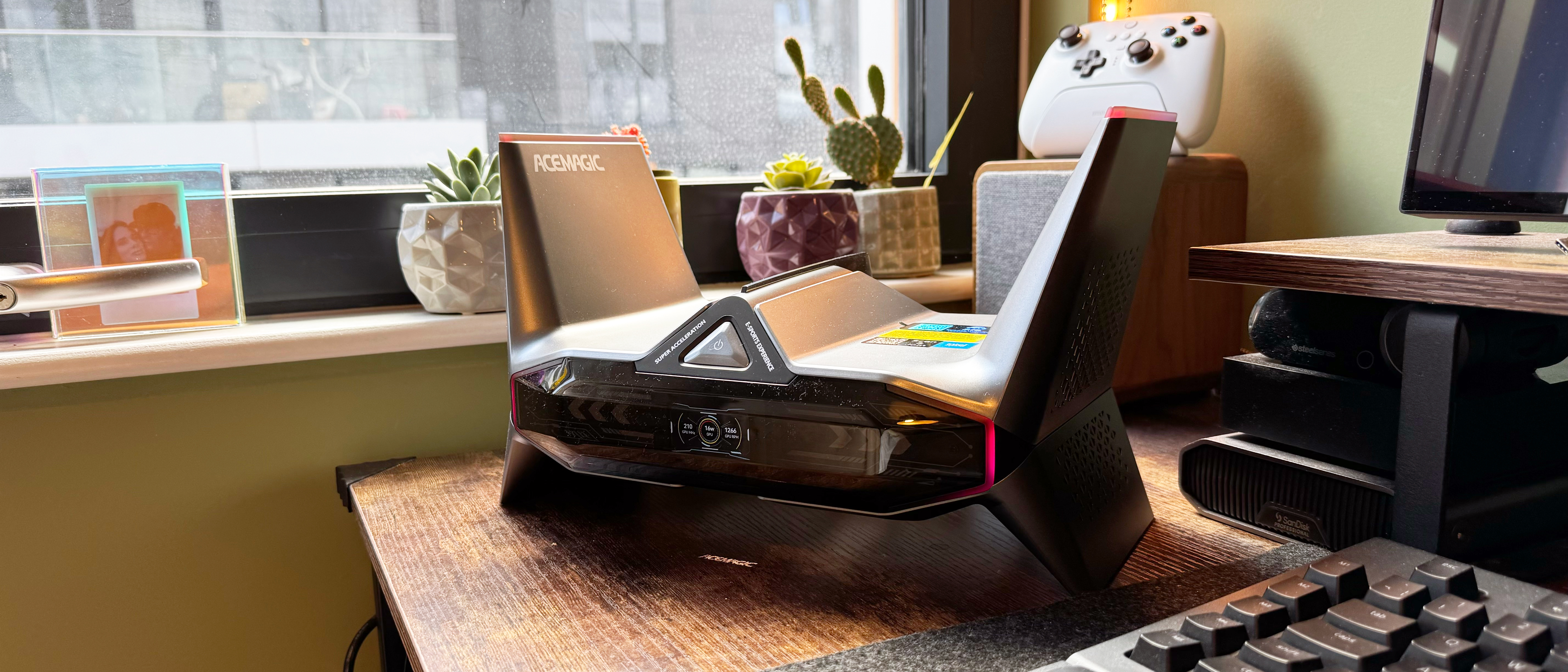iMore Verdict
Its eye-catching design may divide opinion, but the gaming performance of the Acemagic M2A Starship is without question. A great mini gaming PC, provided you’re not offended by its wacky case and in-your-face RGB stylings.
Pros
- +
Wild design
- +
Great gaming performance
- +
Solid port selection
Cons
- -
Style won’t suit everyone
- -
Big for a ‘mini’ PC
- -
Expensive considering older-gen components
You can always trust iMore.
If you’ve followed my reviews on iMore over the past couple of things, you’ll have likely spotted a trend in my tastes — I’m not really into in-your-face designs. I like my tech to have sleek lines and serious industrial designs, the sort that slip into the background and don’t bring attention to themselves. It’s why I love the diminutive-but-powerful Mac Mini so much.
The Acemagic M2A Starship mini gaming PC is the exact antithesis of that aesthetic. As its name suggests, it’s designed to look like something from another world, replete with spaceship-like towering wings, a futuristic front-facing display, and flashy rainbow-scrolling RGB lighting strips.
And yet, I can’t help but love this mad little machine. Quiet in operation, relatively compact in size, and with enough power under the hood to race through loads of top-tier games at high settings and with great framerates, it’s a fun, console-like addition to a living room or gamer’s bedroom. It deserves to be considered alongside the best Mac mini rivals, especially if gaming is your core pursuit.
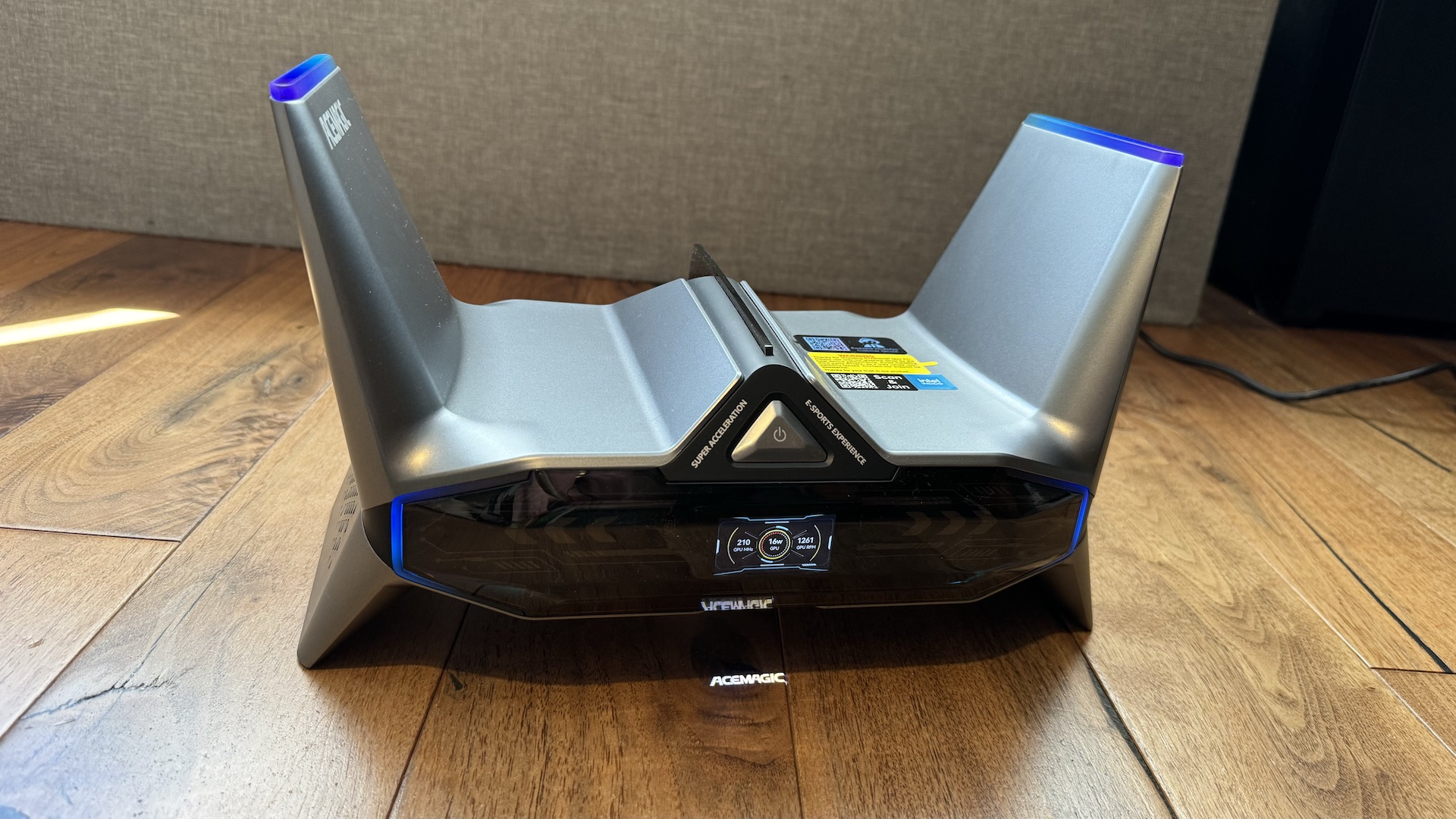
Price and availability
The Acemagic M2A Starship gaming PC is available now. Prices start at $1399 for the Nvidia RTX 3060 version, rising to $1499 for the RTX 3070 model and topping out at $1599 for the RTX 3080 version (which is what we’re reviewing here). All models come with a 12-gen Intel Core i9 12900H, 32GB of DDR5 RAM, a 1TB SSD, and Windows 11 Home as standard.
That’s not cheap for a PC running the mobile version of Nvidia’s last-gen graphics card, but what you’re really paying for here is the unusual and compact form factor. And while the Alder Lake generation CPU is a little older too, the CPU and GPU combined deliver performance just about worthy of the price tag.
Design
As the name suggests, the Acemagic M2A Starship takes its inspiration from the stars when it comes to design. It’s almost insectile, with the core of the computer elevated off the ground, suspended between two angular wings, each topped off with customizable RGB lighting strips. I’m not sure what spaceship it really looks like — maybe Palpatine’s Imperial Shuttle from Star Wars? — but regardless, there’s not much else out there in the world of Windows gaming PCs that looks like this.
It’s full of little quirky flourishes, from its triangle, forward-facing power button, to its front-mounted display, shielded behind a curved clear perspex cover, which displays customizable information including system temperatures, fan speeds, and GPU wattages. There’s even a little tiny Acemagic logo projected from the bottom of the computer onto the surface below. It’s barmy then, but not without utility — those wings are full of ventilation space, and though the fans can whirr up and whine under an intense load, most of the time spent with the Starship saw it emit little more than a gentle hum.
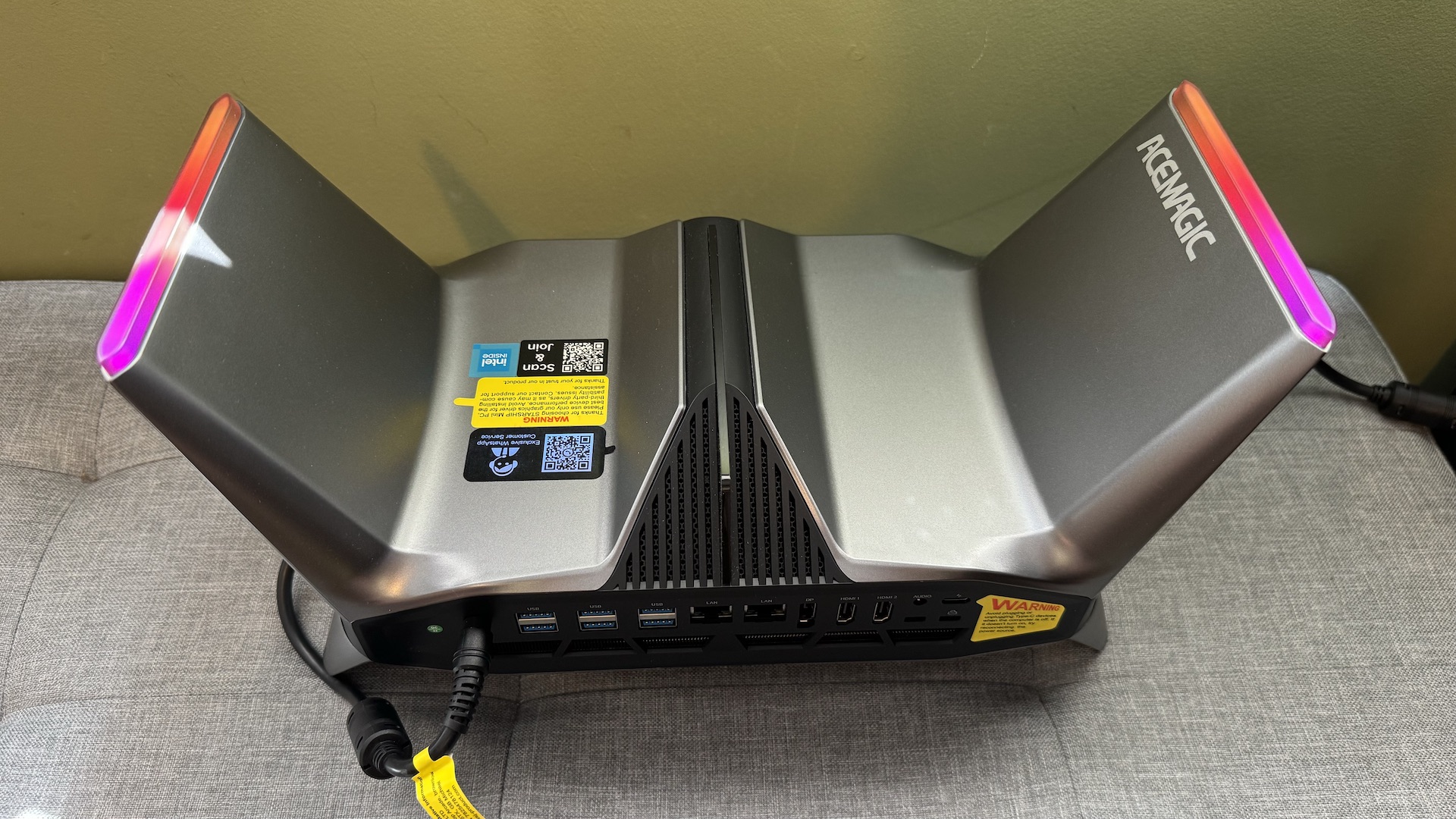
The Acemagic M2A Starship has great IO options, too. Though it’s annoying that they’re all served up around the back, you have access to 1x USB-C (Type 4), 6x full-size USB-A ports (3x at 3.2 Gen 1, and another 3x at 3.2 gen 2), 2x 2.5GB Ethernet ports, 1x DisplayPort 1.4, 2x HDMI 2.0, and a 3.5mm headphone jack. I’d have liked to have seen a couple more USB-C ports, and HDMI pushed to 2.1 for access to higher framerates when attached to a compatible TV. But when it comes to ports, it’s no slouch.
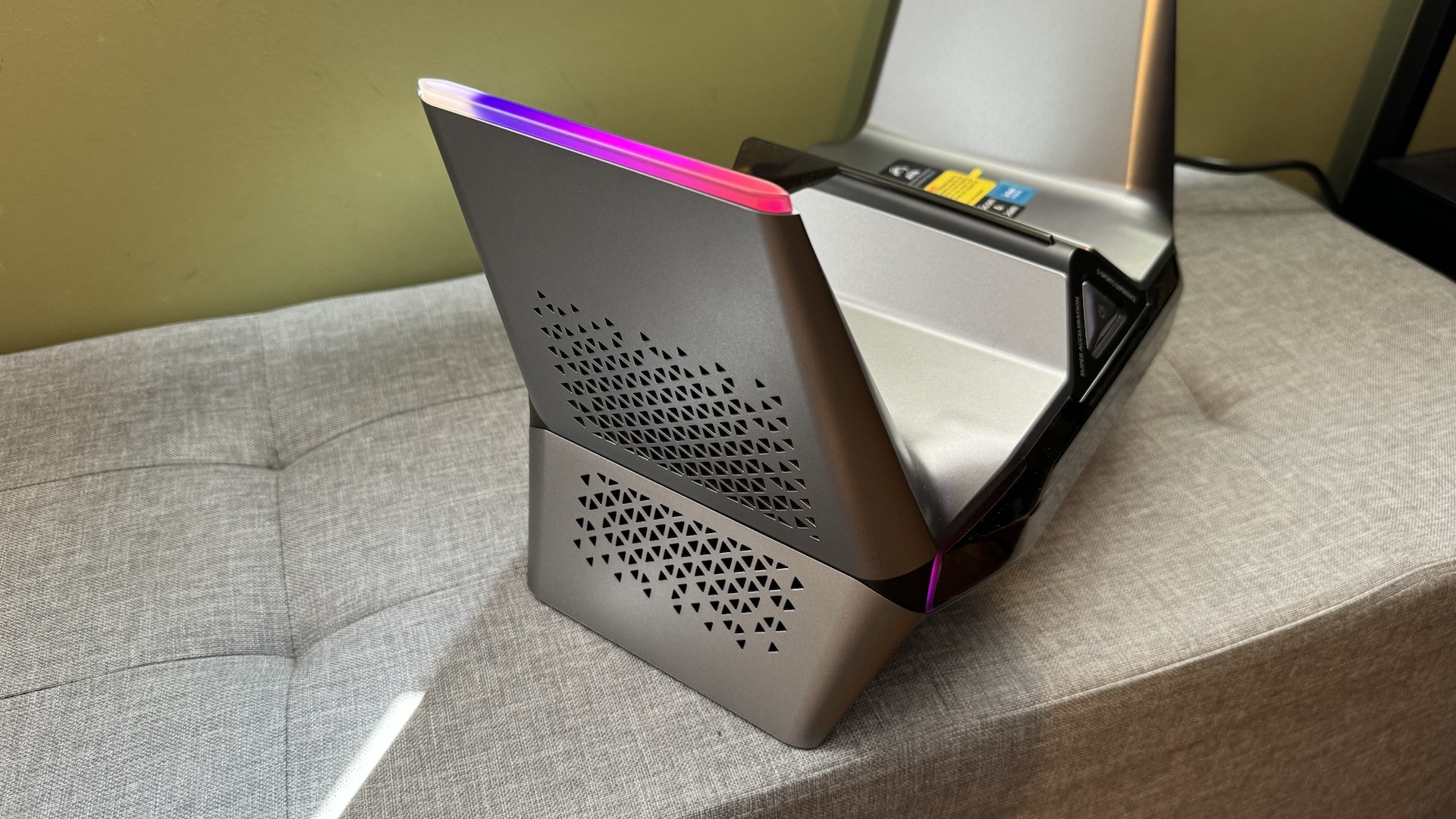
In terms of size, it’d be on the bigger side of what we’d categorize as a mini PC, measuring around 13-inches x 7.3-inches x 7.8-inches — with lots of negative space thanks to the span of the wings. The Acemagic M2A Starship weighs 2.15kg, with a giant power supply that itself weighs more than a kilo. It’s not exactly discreet then, which for many is the appeal of ‘mini’ PCs, and though it’s possible to get inside the case, upgrading RAM or SSD will be a challenge for all but the most patient.
Performance
Though packing slightly older components, the Acemagic M2A Starship still offers more than respectable performance, given its quirky size. AAA games at a 1920 x 1080p resolution won’t trouble it at all, and you can achieve great framerates at 1440p and even at 4K depending on the title and if making some concessions to graphical fidelity.
For our test machine, we’re looking at the variant with Nvidia’s RTX 3080 mobile GPU (16GB VRAM) onboard, paired with the Alder Lake 12-gen Intel Core i9 12900H CPU, all backed up by 32GB of DDR5 RAM. Though you can get newer generations of each component, it's rare to see innards this powerful on a mini PC. Just note you might get more bang for your buck with a less unusual form factor. Connectivity is solid — Wi-Fi 6 and Bluetooth 5.2 handle wireless duties.
GeekBench 6: 2537 Single Core / 12399 Multi core
3DMark — Fire Strike Graphics (1920 x 1080): 25430
CineBench 2024: 11281
Kicking off with the always-demanding Cyberpunk 2077 benchmark, at 1080p resolution the Acemagic M2A Starship managed framerates of 141fps at the ‘Low’ preset, 115fps at the ‘High’ preset, and a still-respectable 37fps on the super demanding ‘Overdrive’ Ray Tracing-packed preset. Pushing up to 1440p saw framerates of 124fps, 81fps, and 31fps for those respective tests. A great time can be had with CD Projekt Red’s sci-fi title then — for the sake of pushing things to their limits, the Overdrive setting at a 4K resolution managed to scrape an average of 19fps, which isn’t too bad, all things considered.
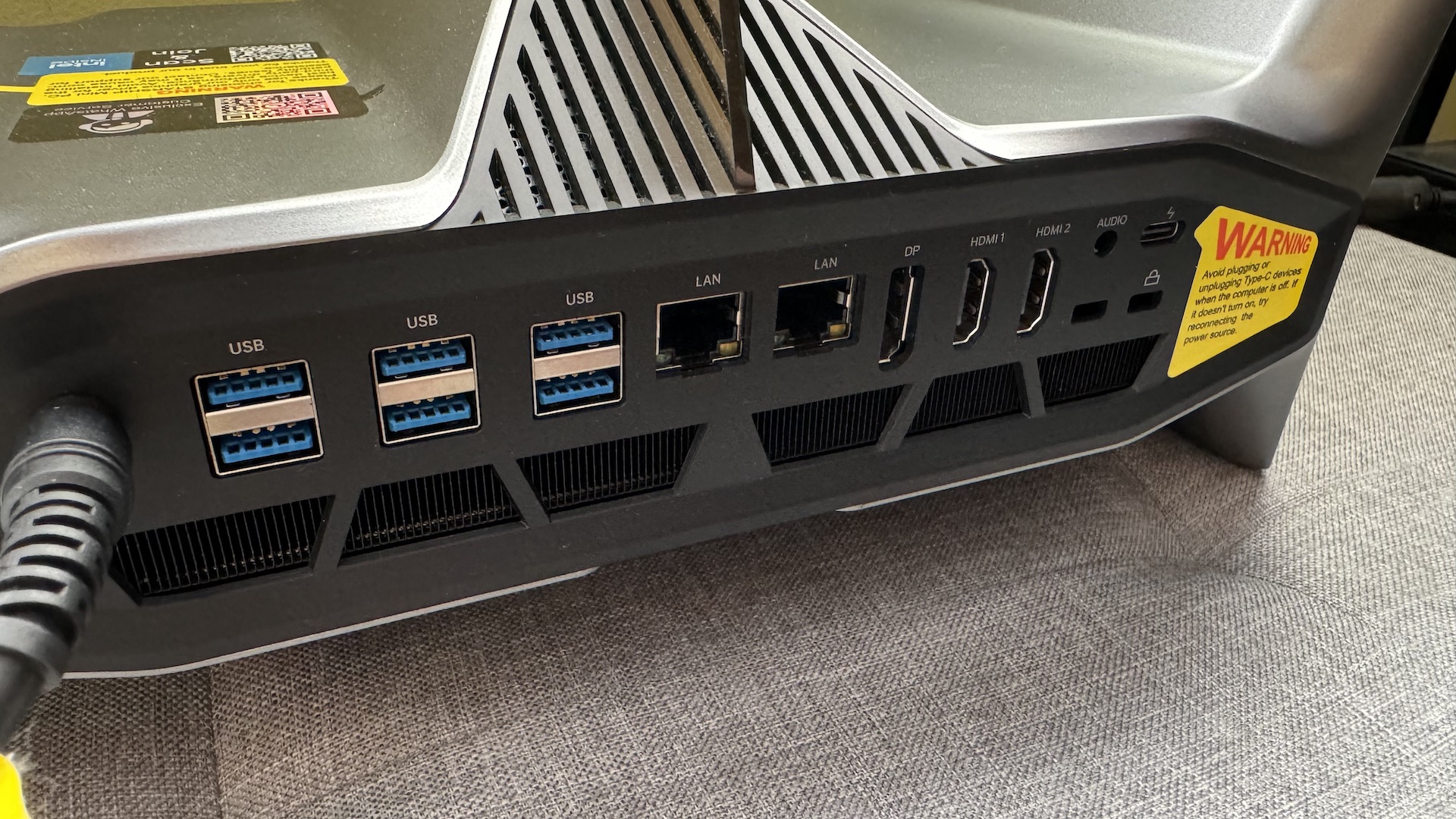
Hitman 3’s Dartmoor benchmark offered up similarly impressive results. At 1080p, with all options set to ‘Low’, it returned average frame rates of 131fps. ‘High’ managed 130fps, and the ‘Ultra’ options, with all Ray Tracing features set to on, managed a very playable 41fps. Moving up to 1440p, the same tests hit framerates of 118fps, 104fps, and 26fps respectively, while running the top-tier test at 4K resolution to really stretch the machine managed a 13fps slideshow.
So long as you’re not a stickler for Ray Tracing options and 4K visuals then, the Acemagic M2A Starship will stick the landing for even demanding 3D titles — and those performance intensive 3D titles can be surprisingly smooth here thanks to the magic of DLSS upscaling. There’s lots of fun to be had, though you’ll likely get better performance from a custom build or more generic form factor. It goes without saying then that it’s a more-than-capable productivity machine too, and would make a great talking point in a college student’s dorm room.
Competition
Though they’re totally different in both form and function, I’d be remiss not to mention our top-pick mini-computer, the Mac Mini with M2 chipset. Small, affordable, and discreet in its super-slick design, it’s my recommendation for anyone looking for a gateway into the Mac ecosystem, especially if they’ve already got a good monitor to pair it with. Prices start at $599.

For something more directly comparable to the Acemagic M2A Starship, consider the AyaNeo Retro Mini PC AM01. It has a similarly playful design in the way it apes the Mac design of old, and is aimed at gamers — though its AMD Ryzen 7 5700U chipset is no match for the performance of the i9 / 3080 combo found in the Starship. Still, the AyaNeo option’s price tag reflects that — prices start at just $319.
Should you buy it?
Buy the Acemagic M2A Starship if...
- You want a gaming PC that sticks out from the crowd
- You find the idea of an onboard screen useful
- You haven’t got room for a full-sized tower PC
Don't buy the Acemagic M2A Starship if...
- You find RGB and wacky cases distasteful
- You want the most bang-for-buck, performance-wise
- You’ve got room for a PC with full-sized, current-gen components
Verdict
I’ve never seen a mini PC quite like the Acemagic M2A Starship before. Its wacky case is in-your-face loud, with its wings and RGB lighting, but it’s not solely for the sake of futuristic aesthetics, making plenty of room for IO, a useful display, and plenty of ventilation. It’s not quite the fastest GPU in existence, but paired with its speedy CPU, the mobile Nvidia 3080 variant in use here still delivers great gaming performance, especially at 1440p resolutions. Sure, you can get more power at a cheaper price point… but with this compact and wild form factor? Unlikely. It’s a fun alternative to the staid mini PCs currently on the market, and a delightful partner to a Mac mini in a space-constrained desk setup.
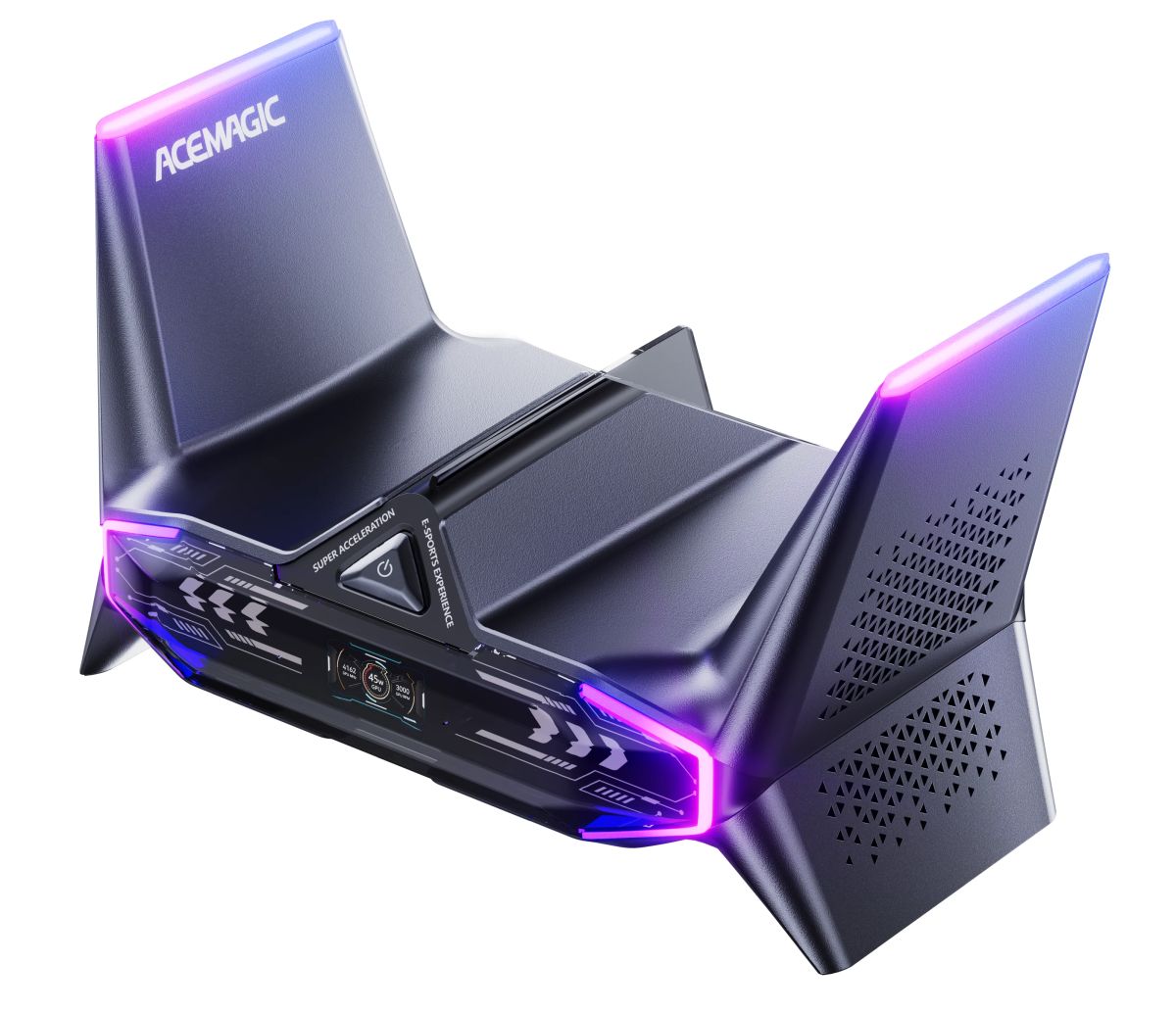
Bottom line: A quirky mini gaming PC with oodles of power, enough to run AAA games at high settings and smooth framerates.

Gerald Lynch is the Editor-in-Chief of iMore, keeping careful watch over the site's editorial output and commercial campaigns, ensuring iMore delivers the in-depth, accurate and timely Apple content its readership deservedly expects. You'll never see him without his iPad Pro, and he loves gaming sessions with his buddies via Apple Arcade on his iPhone 15 Pro, but don't expect him to play with you at home unless your Apple TV is hooked up to a 4K HDR screen and a 7.1 surround system.
Living in London in the UK, Gerald was previously Editor of Gizmodo UK, and Executive Editor of TechRadar, and has covered international trade shows including Apple's WWDC, MWC, CES and IFA. If it has an acronym and an app, he's probably been there, on the front lines reporting on the latest tech innovations. Gerald is also a contributing tech pundit for BBC Radio and has written for various other publications, including T3 magazine, GamesRadar, Space.com, Real Homes, MacFormat, music bible DIY, Tech Digest, TopTenReviews, Mirror.co.uk, Brandish, Kotaku, Shiny Shiny and Lifehacker. Gerald is also the author of 'Get Technology: Upgrade Your Future', published by Aurum Press, and also holds a Guinness world record on Tetris. For real.
